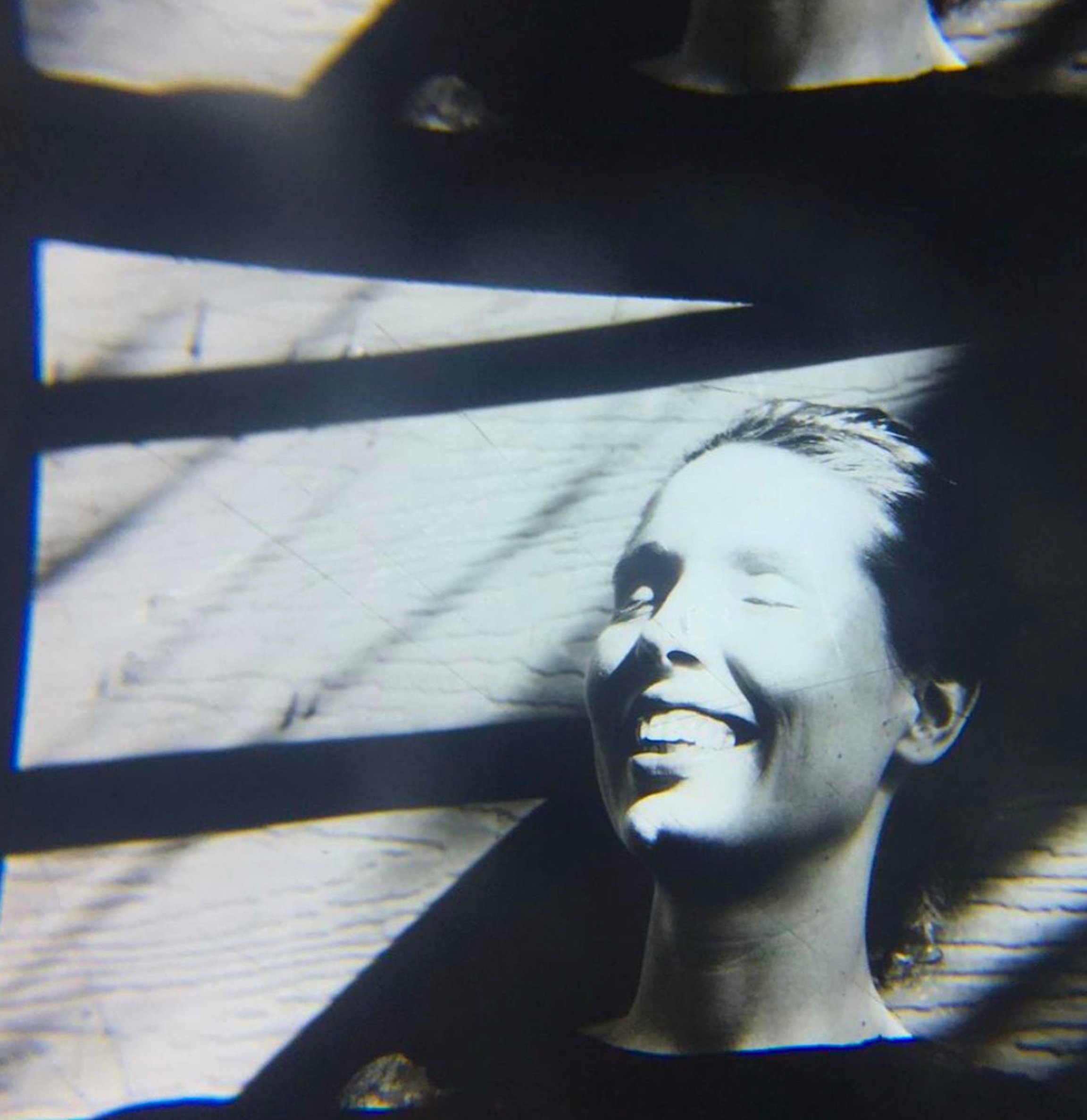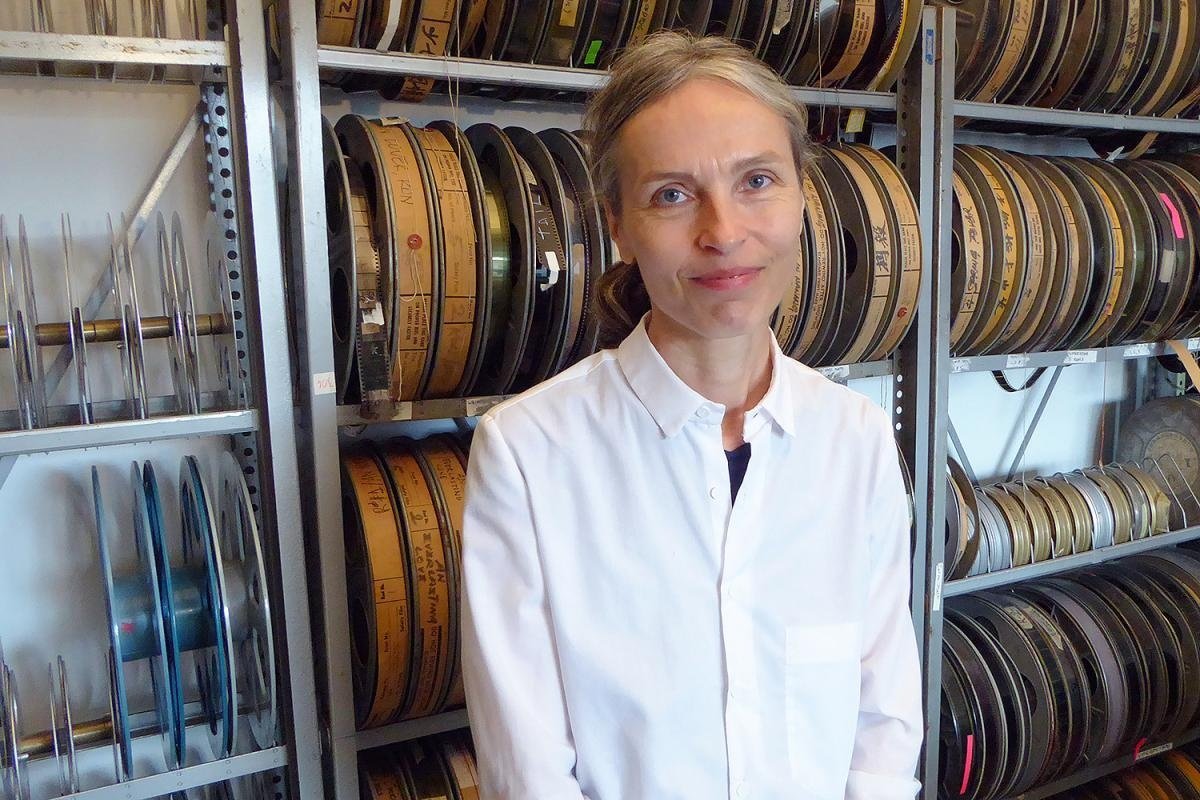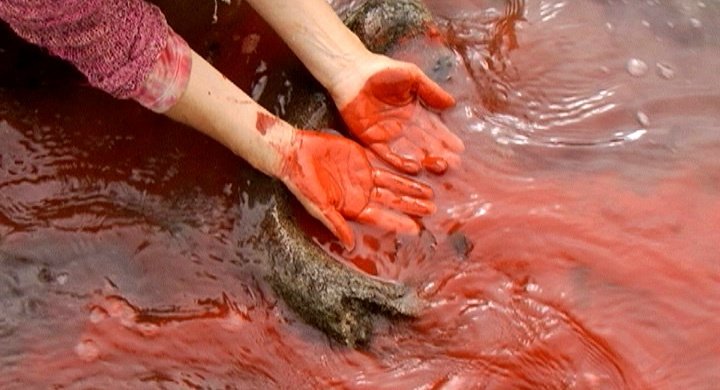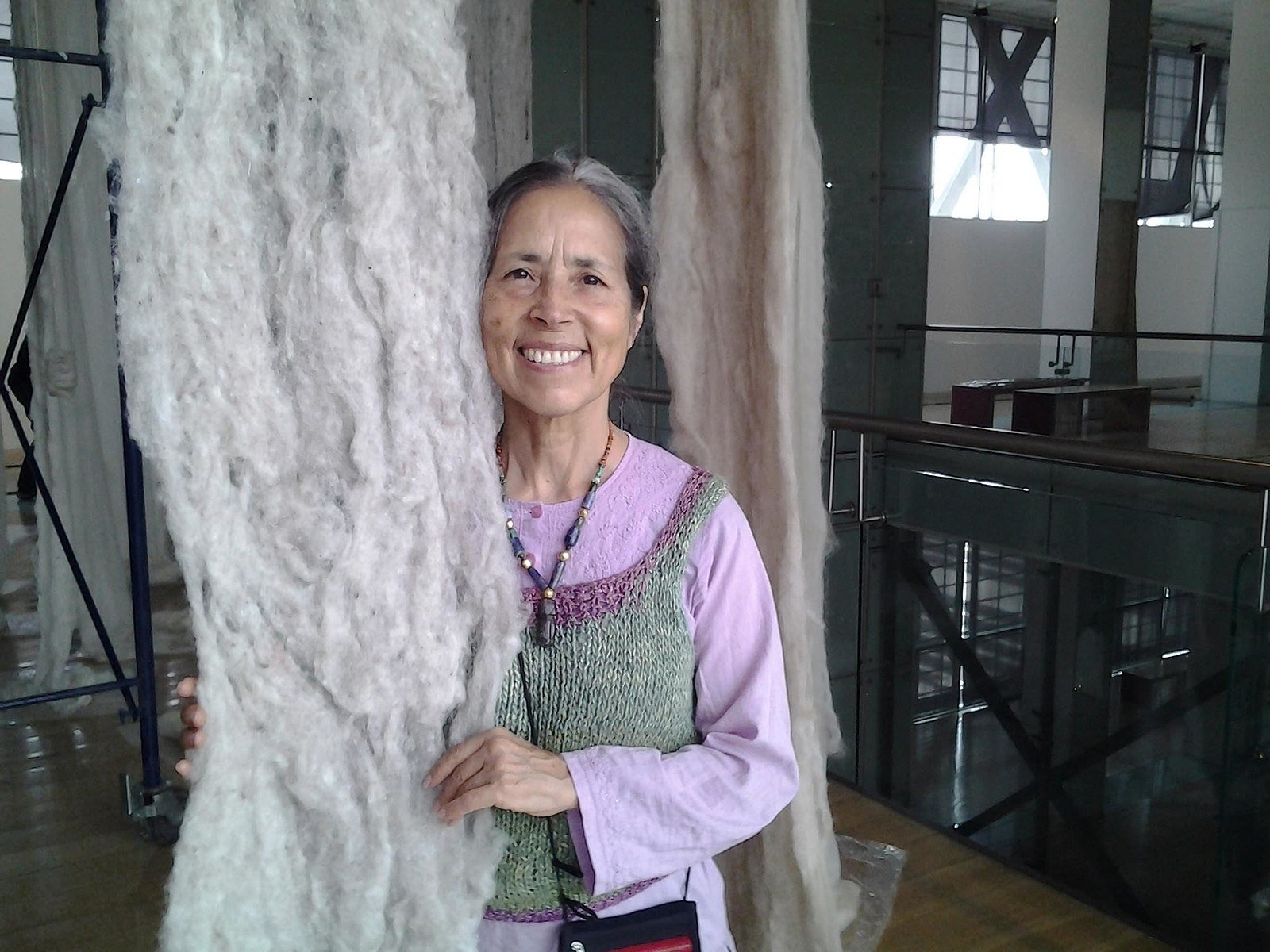Of creation /
Of potential
Sunday, December 5, 2021 7:30pm
Co-presented with UnionDocs - GET TICKETS HERE
** Synchronous online screening via the Union Docs site linked above **
Programmed by Kelsey White
Moderated by Monika Fabijanska
With artist Cecilia Vicuña participating online.
When the land is exhausted and the sea is poisoned and species are dying off, how can the earth communicate its needs and pass on its knowledge of growth and survival for the future? The filmmakers in this program look towards the earth with sensualist and materialist eyes, seeking to discover ancient ways of communing with the natural elements and creating new ways of being and perceiving through film. As Cecilia Vicuña writes, “To recover memory is to recover unity: / To be one with the sky and the sea / To feel the Earth as your own skin / is the only way to pleasure Her.” Immersed in this pleasure, the earth communes with the human, and through our participation, transforms us.
PROGRAM 3
350 MYA (2016) by Terra Long, 5’, 16mm
Becoming Extinct (Wild Grass) (2017) by Elke Marhöfer, 23’, 16mm to digital
Kon Kon (2010) by Cecilia Vicuña, 54’, Digital
TRT: 82 mins
350 MYA (2016)
What moves before the camera is shaped by the same wind that forms the rigid, undulating lines of sand below it as the film invokes the continued presence of the now-vanished Rheic Ocean in the Tafilalet region of the vast Sahara Desert.
Photo Credit: Milja Viita
Terra Long
Terra Long is a filmmaker whose work playfully engages with the materiality of film by way of botanical curiosity, expansive landscape, deep time and cultural imaginaries.
Becoming Extinct (Wild Grass) (2017)
The two concepts of extinction and becoming are difficult to think together, both are more than just a metaphor and none of them offers an easy way out. Tossing more species to the margins increasingly faster, extinction highlights the extraordinary level of disturbance and precarity that the bonding of science and capitalism has imposed on our and other species. Most creatures and places of the earth have been measured, consumed, exhausted, infected, eliminated, and otherwise killed. Becoming adds an affective dimension to our relation with the environment and helps to grasp the disappearance of species, not only as destructive and final, but as transitory. Becoming-with-the-dead mobilizes our imagination for a future life without reconciliation or a place to hide. It embraces the struggle of a collective survival together with the nonhuman. To make this possible, we might need to establish an inclusive approach to ecological conservation and survival, where human reproduction is not the most important factor. We might begin by perceiving the world not as “our” environment, “our” climate, “our” epoch, “our” survival, “our” films, or “our” images. Attempting to do this, the project focuses on plant sensing; an archeological excavation of horses from the late Palaeolithic period; an ecological restoration project of grassland; and cyanobacteria. Assemblages of cyanobacteria sparked what is called the Great Oxygenation Event, dramatically changing the metabolism and composition of the planet by converting the more inhospitable gases in the young earth’s atmosphere into oxygen, making plant and animal life possible, but also leading to the extinction of oxygen-intolerant anaerobe organisms. (Elke Marhöfer)
Photo Credit: Liaison of Independent Filmmakers of Toronto (LIFT)
Elke Marhöfer
Born in the year of the goat and in the month of the scorpion Elke Marhöfer, is an artist based in Berlin and Sicily. She investigates ecological practices that support human and nonhuman communities. Elke collaborates with dear friends and things and revises concepts of animals, vegetables and objects. She works with notions of self-admitted foreignness and radical othering.
Elke studied Fine Art at the University of the Arts in Berlin, at the School of the Art Institute in Chicago and at the Whitney Independent Study Program in New York City. She was awarded a PhD by the University of Gothenburg and pursued an international post-doc at the Kyoto University Graduate School of Global Environment Studies.
Her films have been screened at the Cinematek Brussels, Stockholm, Toronto and Tokyo and at festivals like the transmediale, BFI-Film Festival London, Berlinale – Internationale Filmfestspiele, International Film Festival Rotterdam, Courtisane Festival Ghent and Images Film Festival Toronto.
She has received fellowships, and research grants from LIFT (Liaison of International Filmmakers Toronto), Global Prayers (Artist Fellow research grant), IASPIS Residency Sweden, TCG Kunming China Residency, Berlin Senate, Akademie Schloss Solitude and Cité Internationale des Arts Paris.
Kon Kon (2010)
In this self-described "documentary-poem," Vicuña returns to the beaches of Concón, Chile – the birthplace of her artmaking, where the sea is dying and an ancient tradition is being wiped out. Concón – facing the tallest mountain in the Western Hemisphere, Aconcagua – is home to a cultural heritage extending back thousands of years. Over centuries, the sonido rajado ("torn sound"), a powerful and unique indigenous sound, emerged. Revisiting the site, Vicuña explores the connections between her own art and these ancient music and oral traditions, while witnessing the ecological and cultural destruction of place generated by the oil refinery built in Concón in the 1950s.
Courtesy Electronic Arts Intermix (EAI), New York
Cecilia Vicuña
Cecilia Vicuña is a poet, artist, filmmaker and activist. Her work addresses pressing concerns of the modern world, including ecological destruction, human rights, and cultural homogenization. Born and raised in Santiago de Chile, she has been in exile since the early 1970s, after the military coup against elected president Salvador Allende. Vicuña began creating ""precarious works"" and quipus in the mid 1960s in Chile, as a way of ""hearing an ancient silence waiting to be heard."" Her multi-dimensional works begin as a poem, an image that morphs into a film, a song, a sculpture, or a collective performance. These ephemeral, site-specific installations in nature, streets, and museums combine ritual and assemblage. She calls this impermanent, participatory work “lo precario” (the precarious): transformative acts that bridge the gap between art and life, the ancestral and the avant-garde. Her paintings of early 1970s de-colonized the art of the conquerors and the ""saints"" inherited from the Catholic Church, to create irreverent images of the heroes of the revolution. A partial list of museums that have exhibited her work include: The Museu de Arte Moderna do Rio de Janeiro, Brazil; The Museo Nacional de Bellas Artes de Santiago; The Institute of Contemporary Arts (ICA) London; Art in General in NYC; The Whitechapel Art Gallery in London; The Berkeley Art Museum; The Whitney Museum of American Art; and MoMA, The Museum of Modern Art in New York.
Vicuña has published twenty-two art and poetry books, including Kuntur Ko (Tornsound, 2015), Spit Temple: The Selected Performances of Cecilia Vicuña (Ugly Duckling Presse, 2012), Instan (Kelsey Street Press, 2001) and Cloud Net (Art in General, 2000). Her Selected Poems is forthcoming from Kelsey Street Press in 2017. In 2009, she co-edited The Oxford Book of Latin American Poetry: 500 years of Latin American Poetry. She edited ÜL: Four Mapuche Poets in 1997. She was appointed the Messenger Lecturer 2015 at Cornell University, an honor bestowed on authors who contribute to the ""evolution of civilization for the special purpose of raising the moral standard of our political, business, and social life."" She divides her time between Chile and New York.
Flaherty NYC Programmers
Kelsey White Born in Los Angeles when Saturn and Uranus were conjunct with the Sun at the Ascendant, Kelsey White is currently a film projectionist living in Brooklyn, New York. Though much of her time is given towards showing films to the cinephiles in New York City, she continues to pursue a polyphonic set of creative interests, including writing, music-making, and filming. She is a new mother who likes to observe the changing seasons and listen to small talk on street corners, and she attempts to practice non-judgment towards all beings, remaining open to the unknown, while carefully paying attention to the complexity, the irony and pain, as well as the beauty of existence.
L u m i a (818) 514 - 4601






